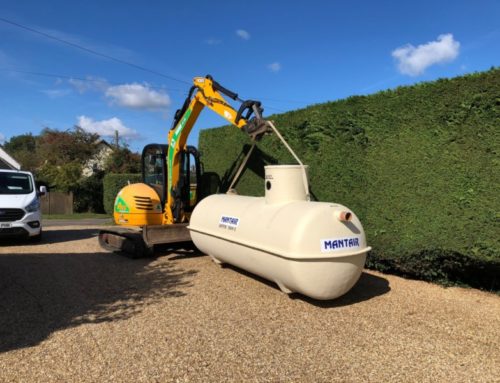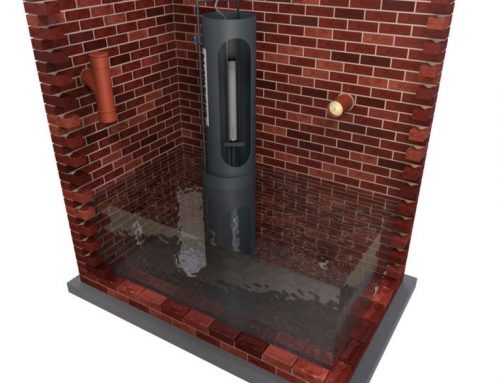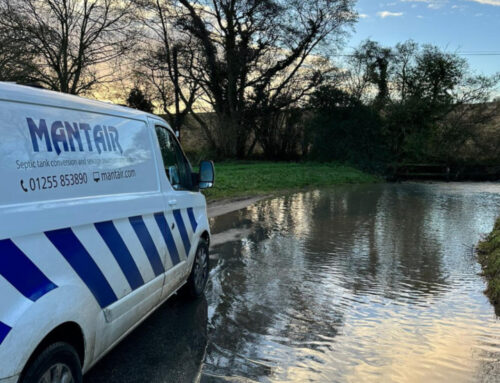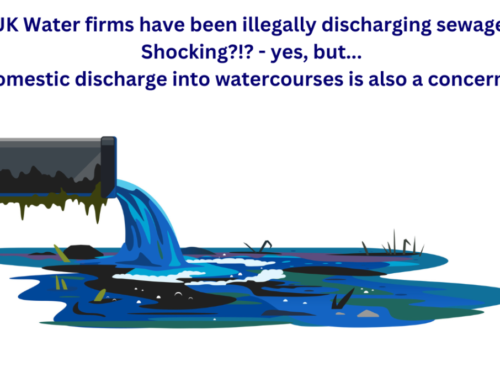Why is it important to be careful with what you flush into your septic tank / sewage treatment plant?
Your sewage treatment plant / septic tank system needs bacteria to complete the treatment process.
Flushing items into your sewage treatment plant / septic tank, other than the 3 P’s (Pee, Poo & Paper) can disrupt or kill off the bacteria your system needs to thrive, as well as causing blockages and smells. This can cause undigested waste to build up – think blockages, flooding and untreated effluent discharges.
The Environment and our Ecosystems
Consequently, whilst not only becoming a problem for yourself, a failed septic tank can release bacteria and chemicals that can kill ecosystems and wildlife. This is particularly relevant when celebrating World Wetlands Day (2 February 2023) that raises awareness of the rapid loss and decline of our wetlands. Wetlands are land saturated or flooded with water (i.e. rivers, streams, canals and ditches) and are among our most diverse and productive ecosystems.
Your choices and small changes in habits can make a big difference…
Be careful with what you flush…
As a homeowner with a septic tank or sewage treatment plant, you can make choices that can help to conserve our ecosystems, as well as prevent you from experiencing sewage problems.
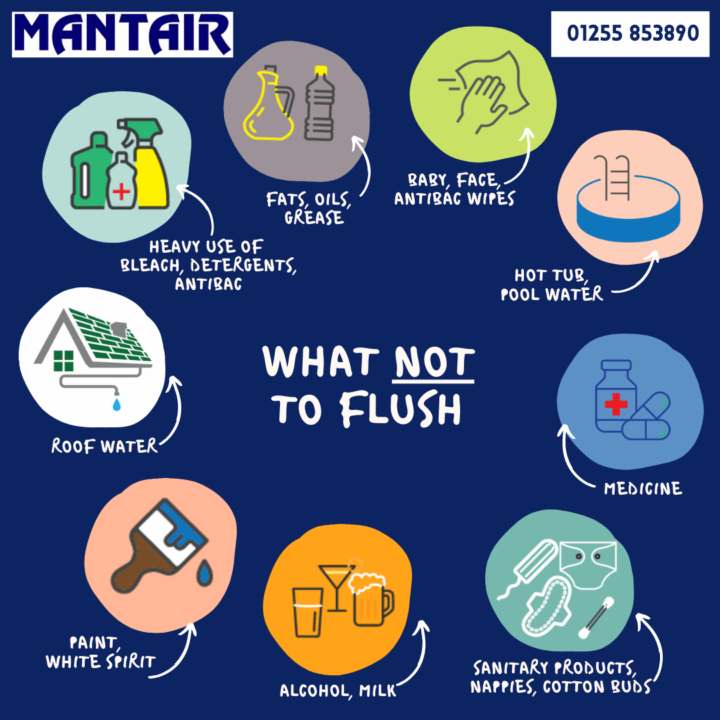

A non-exhaustive list can be found below – whilst many of these items may seem obvious, you will be surprised what our Engineers have encountered over the years!:
Do not flush |
Why? |
Top Tips |
|---|---|---|
| Fats, Oils and Greases (FOG) | Can cause a buildup of solidified fats, oils and grease in your tank that prevents bacteria from working and causing blockages. | Put cooled fats, oils & greases into a jar, tub or yogurt pot and throw it away. |
| Wipes (baby, antibacterial or face wipes) | Wipes block pipes – they do not breakdown | Try reusable options if you can, or dispose of them in the bin. |
| Medication | Can prevent the development of bacteria inside a tank and can show up in rivers, streams, etc. | Take unused medication to a pharmacist for safe disposal. Seek advice if you are using an excessive amount of antibiotics as this can kill the bacteria in your system |
| Food waste | Can cause blockages and increase the loading on the treatment process in tanks | Clear your plates – scrape leftover food residues from plates, pans and utensils into the compost or food recycling before washing up. |
| Nappies, Sanitary products and Cotton Buds | Do not break down and will accumulate over time! | Bag it and bin it – use scented nappy sacks or dog poo bags (degradable if you can) |
| Hair | Have you noticed hair clogging your plug holes? We rest our case. | A sink or drain strainer can stop hair getting down the pipes. |
| Latex items – such as condoms or latex glove | Do not breakdown and cause blockages. | Bag it and bin it |
| Cat litter | Often contains minerals/clay that hardens when wet causing blockages. | Dispose of in a bin using a biodegradable poo bag. |
| Heavy use of bleach/detergents | These products are designed to kill off bacteria, which we need to keep thriving in your tank. | Minimise usage and spread throughout the week. |
| Cigarette butts | Contain plastic filters that are not biodegradable and cause clogging. | Bin the Butt – visit www.keepbritaintidy.org to find out more. |
| Milk | Is high fat, which can solidify. It also has a very high oxygen demand, which may cause bacterias to feed on it and use up oxygen that is otherwise used by living things in ecosystems. | Mix 50:50 with water and use on plants as a good fertilizer. The calcium is good for growth. |
| Rain water | Excessive water entering your system can cause it to flood. | If rain water is entering your tank, contact us for a free site visit to discuss your options. |
| Paint / White spirit | Chemicals interfere with the treatment process. | Return unused paint to your supplier, or give it to someone in need. Add a paint hardener, sawdust or sand to your paint and take it to your local recycling centre – they will not accept liquid paint. For white spirit, check to see if your local recycling centre has a collection point for petroleum-based solvents. |
| Kitchen roll | Thicker than toilet roll and is harder to breakdown | Bin it. If not soiled – compost it. Use a reusable alternative. |
| Water from Swimming pools / Hot Tubs | Contains bacteria disrupting chemicals. | Seek advice from local council/Environment Agency |
